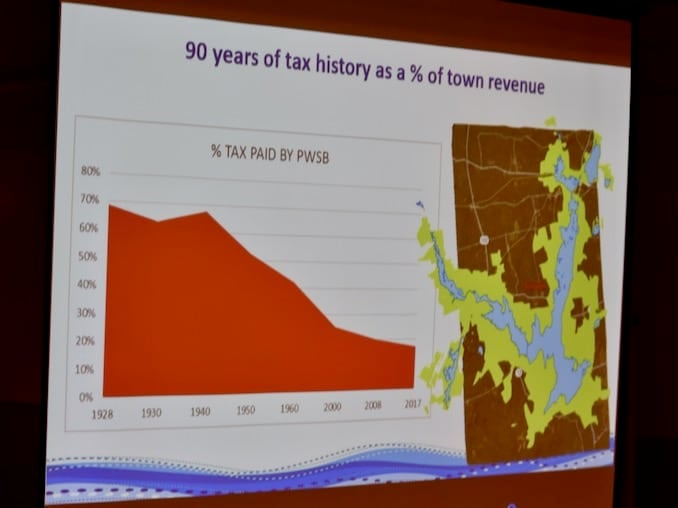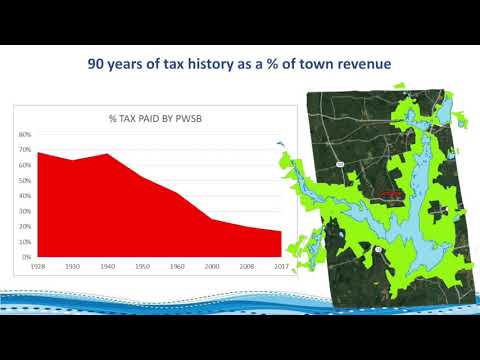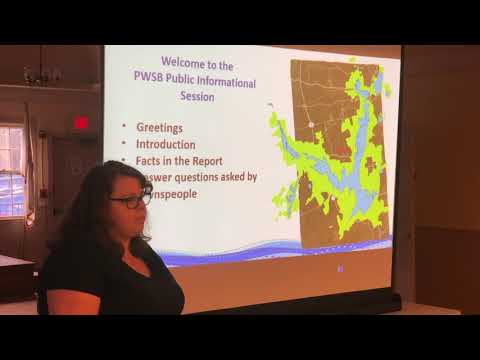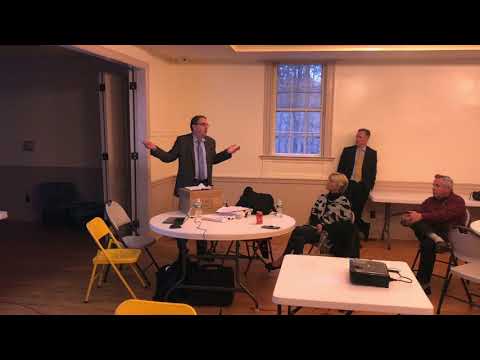Water: Understanding the relationship between Scituate and it’s largest taxpayer, the City of Providence
Former State Representative Michael Marcello, who authored a report commissioned by the Scituate Town Council examining the relationship between the Town of Scituate and the City of Providence concerning the Scituate Reservoir and the Providence Water Supply Board, spoke at the Scituate Democratic Town Committee meeting last night to explain the report’s findings and answer questions. You can access the
April 24, 2019, 7:47 am
By Steve Ahlquist
Former State Representative Michael Marcello, who authored a report commissioned by the Scituate Town Council examining the relationship between the Town of Scituate and the City of Providence concerning the Scituate Reservoir and the Providence Water Supply Board, spoke at the Scituate Democratic Town Committee meeting last night to explain the report’s findings and answer questions. You can access the report on the Town of Scituate’s website here.
The report is designed as an overview of the relationship between Providence and Scituate concerning the taxation and assessment of Providence Water Supply Board property within Scituate’s borders. Marcello writes, “The relationship between the Town of Scituate and its largest taxpayer, the City of Providence, is unique among all municipalities in the state. Because Providence, through the Providence Water Supply Board owns approximately 42 percent of the total land within the Town of Scituate, the interactions between the two municipal governments often can be marked by tension, mistrust, and in good-times, mutual cooperation and benefit.”
The report is important because there will be negotiations between the Town and the City concerning how much money Providence will pay in taxes on the property owned in Scituate.
Here’s Marcello’s full presentation:
Alicia Kelley, who chairs the Scituate Democratic Town Committee introduced the event. “Scituate residents, starting in elementary school, learn about being stewards of the reservoir,” said Kelley. “This is a major part of our culture and the fabric of the Town.”
In addition to a review of Marcello’s report, there was also brief discussion of yesterday’s Superior Court decision that approved the Town of Johnston‘s sale of water to Invenergy’s proposed power plant in Burrillville.
After the presentation, Marcello fielded questions from those in attendance.

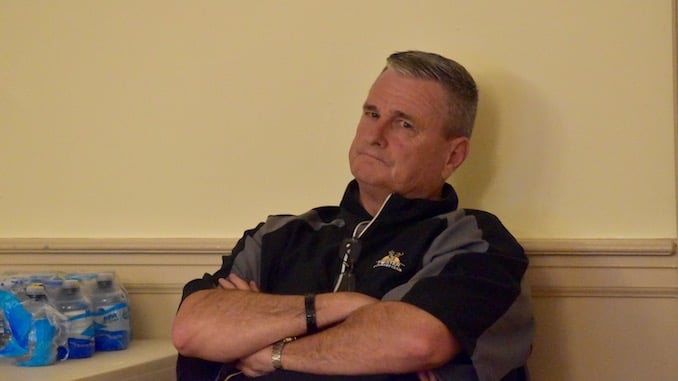
UpriseRI is entirely supported by donations and advertising. Every little bit helps:
Become a Patron!



